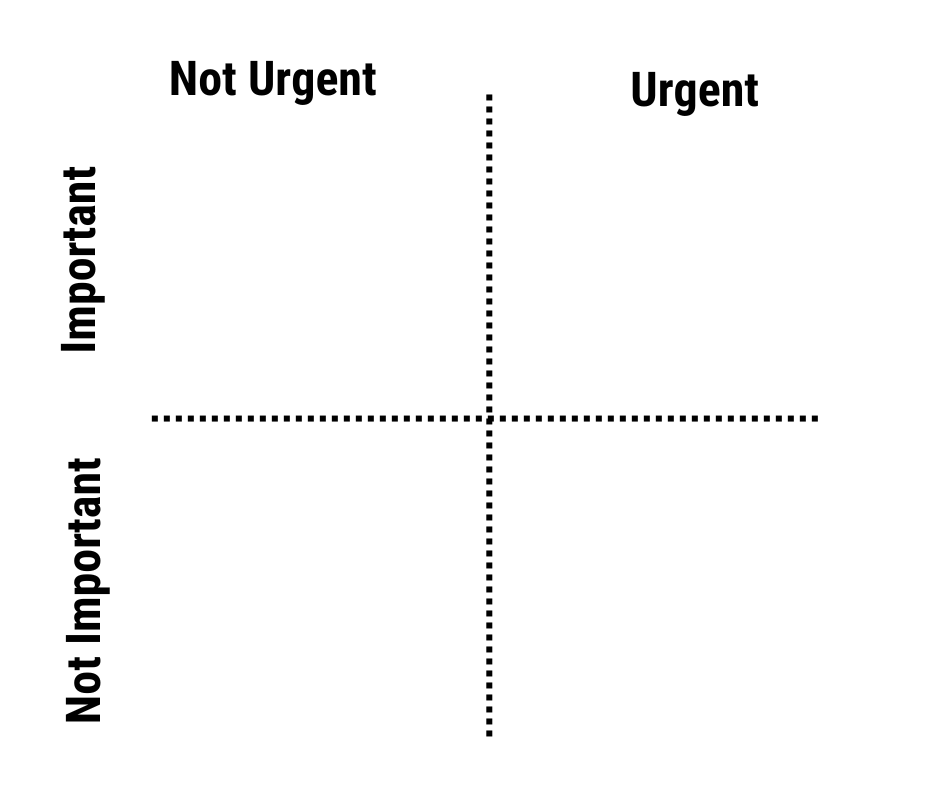In today’s fast-paced world, stress has become a common part of everyday life. From work pressures to personal responsibilities, the demands on our time and energy can often feel overwhelming. The American Psychological Association’s Stress in America survey reveals that 75% of adults report experiencing moderate to high levels of stress in the past month. It’s clear that finding effective coping strategies for everyday stress is more important than ever.
In this blog post, we will explore three powerful coping strategies for everyday stress. These strategies will help you manage your tasks more effectively, align your actions with your values, and ultimately reduce the stress in your life. Let’s dive in.
The Reality of Everyday Stress
Stress is a normal part of life and can even be beneficial in small doses, helping us stay alert and motivated. However, chronic stress can have serious negative impacts on our physical and mental health. According to the National Institute of Mental Health (NIMH), long-term stress can contribute to a variety of health problems, including heart disease, diabetes, and mental health disorders like anxiety and depression.
The World Health Organization (WHO) has also identified stress as a major health challenge of the 21st century, highlighting its prevalence in modern society. The demands of work, family, and social obligations can often feel overwhelming, leading to a constant state of stress that many people struggle to manage. For an idea for an explanation to why this sad situation is developing in many societies, read this article:”Modern Lifestyle Challenges: Why Our Stone Age Bodies Are Struggling To Cope“
Strategy 1: Prioritizing with the Urgent/Not Urgent and Important/Not Important Diagram
One of the most effective coping strategies for everyday stress is learning how to prioritize your tasks. The Eisenhower Matrix, also known as the Urgent/Important Matrix, is a simple yet powerful tool that can help you organize your tasks and reduce stress.
The Eisenhower Matrix Explained
Imagine a matrix divided into four quadrants:
- Urgent and Important: Tasks that need immediate attention and are critical to your goals. These are often crises or deadlines.
- Not Urgent but Important: Tasks that are important for your long-term success but do not require immediate action. These include planning, strategic thinking, and personal development.
- Urgent but Not Important: Tasks that require immediate attention but do not contribute significantly to your long-term goals. These are often interruptions or minor tasks.
- Not Urgent and Not Important: Tasks that have little to no value and do not contribute to your goals. These are distractions or time-wasters.

How to Use the Eisenhower Matrix
To use the Eisenhower Matrix effectively, start by listing all your tasks and categorizing them into one of the four quadrants. Focus on completing tasks in the “Urgent and Important” quadrant first. Next, schedule time for tasks in the “Not Urgent but Important” quadrant to ensure they are not neglected. Delegate or minimize tasks in the “Urgent but Not Important” quadrant, and eliminate tasks in the “Not Urgent and Not Important” quadrant.
By prioritizing your tasks in this way, you can reduce the feeling of being overwhelmed and focus on what truly matters. This can lead to a significant reduction in stress.
Strategy 2: Using a “To-Schedule List” Instead of a “To-Do List”
Another effective coping strategy for everyday stress is to shift from a traditional “to-do list” to a “to-schedule list.” This involves scheduling your tasks into your calendar instead of merely listing them.
The Problem with To-Do Lists
To-do lists are popular because they provide a sense of organization and accomplishment. However, they can also be a source of stress. A long to-do list can be overwhelming, and tasks that are not completed can lead to feelings of guilt and anxiety.

The Benefits of a To-Schedule List
A to-schedule list addresses these issues by assigning specific times for each task. This method ensures that you have allocated time for all your important activities, reducing the likelihood of overcommitting and feeling overwhelmed.
How to Create a To-Schedule List
- List Your Tasks: Start by writing down everything you need to do.
- Estimate Time: Estimate how long each task will take.
- Schedule Tasks: Block out specific times in your calendar for each task. Be realistic about how much you can accomplish in a day.
- Include Breaks: Schedule regular breaks to avoid burnout and maintain productivity.
By using a to-schedule list, you can ensure that you have enough time to complete your tasks, reducing the stress associated with a never-ending to-do list. Consider reading: Effective Habit Building: A 9-Step Guide To Lasting Change if you want to implement this new “to-schedule list” habit.
Strategy 3: Aligning Actions with Personal Values
The third coping strategy for everyday stress involves evaluating your tasks and ensuring they align with your personal values. This strategy can help you prioritize tasks that truly matter and eliminate those that do not contribute to your overall happiness and well-being.
The Importance of Personal Values
Personal values are the principles and beliefs that guide your behavior and decisions. When your actions are aligned with your values, you are more likely to feel fulfilled and less stressed. However, when there is a disconnect between your actions and values, it can lead to frustration and stress.

How to Align Your Actions with Your Values
- Identify Your Values: Reflect on what is most important to you. This could include family, career, health, personal growth, or community service.
- Evaluate Your Tasks: For each task on your list, ask yourself why you are doing it. Is it aligned with your personal values, or is it driven by external pressures or obligations?
- Make Adjustments: Prioritize tasks that align with your values and consider eliminating or delegating those that do not.
By aligning your actions with your values, you can focus on what truly matters to you, reducing stress and increasing overall satisfaction.
Embracing Effective Coping Strategies
In conclusion, everyday stress is a common challenge in our modern society, but it is possible to manage it effectively with the right strategies. By prioritizing tasks with the Eisenhower Matrix, using a to-schedule list, and aligning your actions with your personal values, you can reduce stress and improve your overall well-being.
Remember, coping strategies for everyday stress are not one-size-fits-all. Experiment with different approaches to find what works best for you. With practice and persistence, you can develop habits that help you manage stress more effectively and lead a more balanced, fulfilling life.
Looking Deeper: Understanding the Roots of Your Stress
While these coping strategies are powerful tools to manage everyday stress, it’s essential to explore the underlying causes of your stress. These tips can help you navigate daily challenges more effectively, but addressing the root of your stress is crucial for long-term well-being.
Stress often stems from deeper issues such as unresolved conflicts, unmet needs, or misalignment with your values and life goals. Taking the time to reflect on these underlying factors can provide insights into why you feel stressed and help you make more meaningful changes in your life.
Consider seeking support from a therapist or counselor, practicing mindfulness, or engaging in self-reflection exercises to uncover the sources of your stress. By understanding and addressing the root causes, you can achieve a more balanced and fulfilling life, free from the chronic stress that impacts so many.
Remember, managing stress effectively requires both coping with immediate pressures and understanding the deeper issues that contribute to your stress. Combining these approaches will help you lead a healthier, more resilient life.
Additional Reading and Reach Out
If you found this article interesting, you might also enjoy reading “Primitive Survival: 10 Tips To Break Free From Modern Life’s Hamster Wheel“. For any questions or to dive deeper into these ideas, feel free to reach out via this link. Life is all about learning, and the best way to learn is through communication and debate, so please don’t hesitate to connect!
Reflection and Disclaimer
This article was written to provoke modern society norms and encourage you to reflect on your own life. While the content sometimes presents a black-and-white picture, I acknowledge that life is rarely that simple. I am not a behavioral science expert, and this article is based on personal experiences that have helped me find more fulfillment. For professional advice regarding serious health issues, please always consult medical experts.

2 thoughts on “3 Simple but Powerfull Coping Strategies for Everyday Stress”